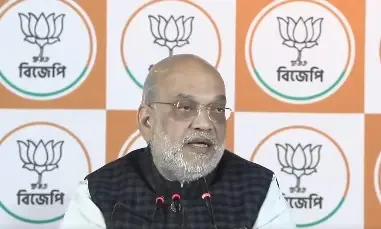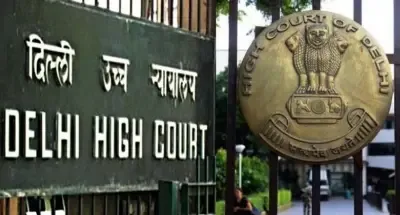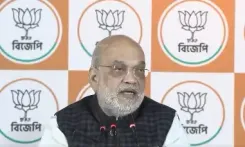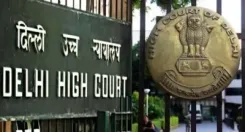Did Durga Puja Influence the Decision for September 22 GST Reform Implementation?

Synopsis
Key Takeaways
- Implementation Date: September 22 to coincide with Durga Puja.
- Streamlined Process: Next-gen GST reforms aim to simplify tax compliance.
- Automatic Refunds: 90% of refunds will be processed automatically.
- Regional Impact: Reduced GST rates on 11 signature items from West Bengal.
- Cultural Significance: The reforms reflect the importance of festivals in policymaking.
Kolkata, Sep 18 (NationPress) Union Finance Minister Nirmala Sitharaman announced on Thursday that the choice of September 22 as the date for launching the next-generation goods and services tax (GST) was significantly influenced by the upcoming festive season in West Bengal, commencing with the state’s largest festival, Durga Puja, later this month.
During a discussion regarding the next-gen GST reforms at the renowned National Library, the Union Finance Minister emphasized that the festive atmosphere in West Bengal, particularly with Durga Puja approaching, led to the decision to implement the revamped GST on the auspicious first day of Navratri, following Mahalaya Amavasya, a day that heralds the arrival of Goddess Durga to Earth.
Union Minister Sitharaman pointed out that the influence of West Bengal played a crucial role in this decision-making process and highlighted that the state will continue to be a guiding force for the nation, just as it was during India’s struggle for independence from British rule.
“Bengal has consistently contributed to leading the nation, just as it has in this instance,” she remarked.
She also presented a list of 11 notable signature items from West Bengal that will see reduced GST rates under the new reforms, promising significant benefits for the populace.
“These initiatives will assist the government in invigorating regional economies, supporting local livelihoods, and ensuring that India’s taxation framework is both efficient and inclusive,” she noted.
On this occasion, Union Minister Sitharaman added that the next-generation GST reforms would feature a more streamlined process, rendering the taxation system more user-friendly.
She mentioned that in the new tax structure, nearly 90% of refunds would be processed automatically, with only 10% of tax returns subject to review to mitigate fraudulent claims.
“The next-gen GST reforms represent a groundbreaking advancement in simplifying tax compliance, empowering businesses, enhancing the ease of living for citizens, and positively contributing to the nation’s economic progress,” she stated.










